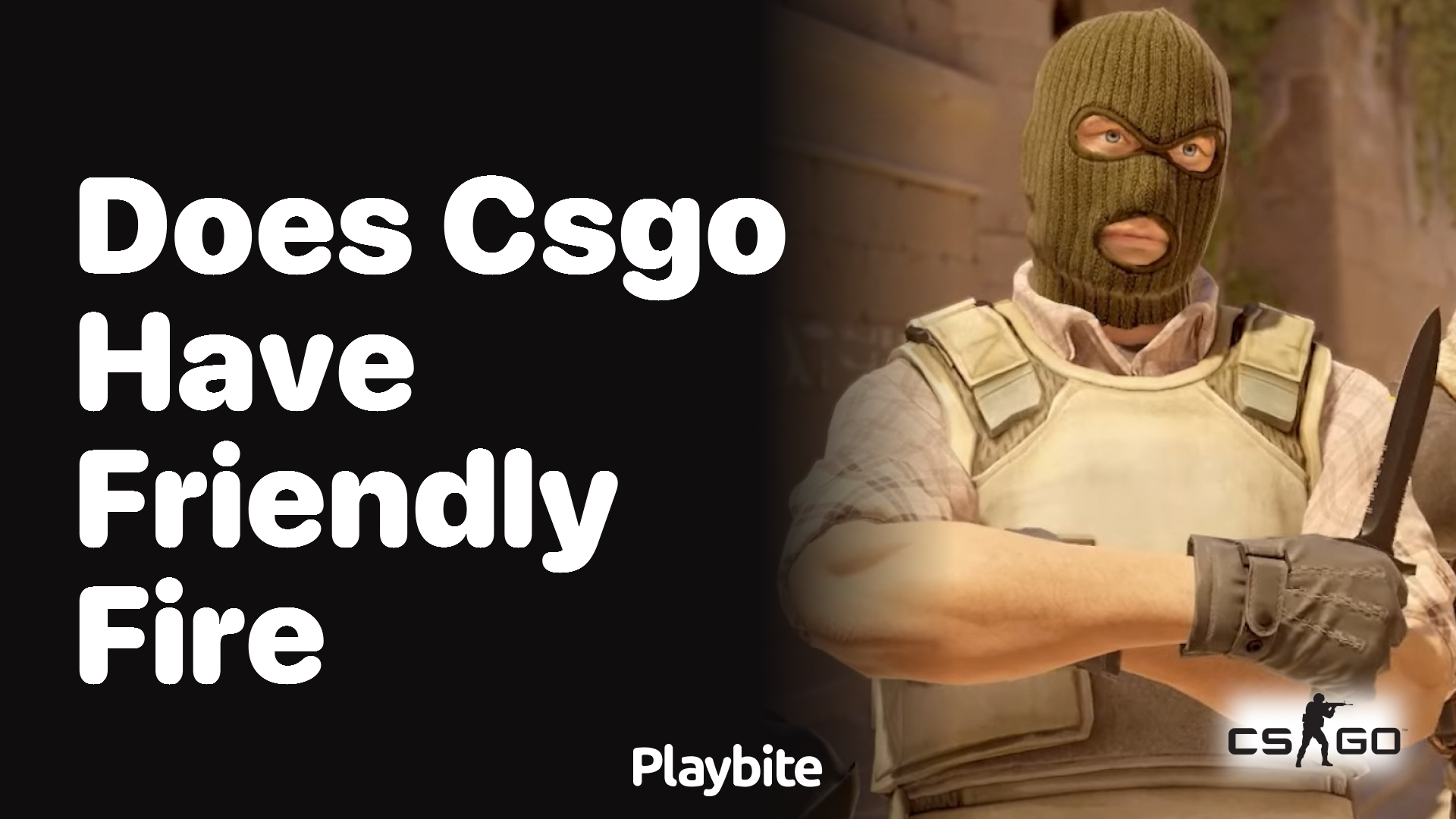BJY Trends
Stay updated with the latest trends and insights.
Avoiding Friendly Fire: Keeping Your Friends Close and Your Aim Sharp in CSGO
Master the art of teamwork in CSGO! Discover tips to avoid friendly fire and sharpen your aim for ultimate victory. Click to level up your gameplay!
Understanding Collateral Damage: Tips to Avoid Friendly Fire in CSGO
Understanding collateral damage in Counter-Strike: Global Offensive (CSGO) is crucial for any player looking to enhance their gameplay. Friendly fire can lead to unexpected setbacks, significantly affecting team morale and strategy. To minimize collateral damage, players should communicate clearly with their teammates, utilizing voice chat or in-game markers to signal intentions. Additionally, being aware of your surroundings and ensuring that you have a clear line of sight before firing can help you avoid unintentionally harming your allies.
Another important tip to avoid friendly fire is to practice good positioning. Keep a safe distance from your teammates, especially during intense firefights, to reduce the risk of hitting them with your shots or grenades. Utilize cover effectively and maintain situational awareness to anticipate enemy movements. Furthermore, consider adjusting your in-game settings to reduce accidental friendly fire incidents, such as disabling damage to teammates when appropriate. By implementing these strategies, you can significantly reduce collateral damage in CSGO and contribute more effectively to your team's success.

Counter-Strike is a tactical first-person shooter that emphasizes team-based gameplay and strategic planning. One of the most popular maps in the game is Mirage, which features numerous tactical positions and callouts that are essential for team communication. For detailed strategies, you can check out the mirage callouts to improve your gameplay on this iconic map.
Team Communication Strategies: How to Keep Your Allies Safe
Effective team communication strategies are essential to ensure that all allies within an organization feel secure and informed. Regular check-ins and open lines of communication foster a supportive atmosphere where team members can express their concerns and ideas freely. Implementing tools such as anonymous feedback forms can also empower employees to voice their opinions without fear of backlash. Creating a safe space for sharing ideas promotes collaboration and innovation, leading to improved outcomes for the entire team.
One of the most valuable team communication strategies involves establishing clear protocols for escalation during crises. Ensuring that all team members understand the procedures in place for reporting issues can help protect them in challenging situations. Additionally, incorporating regular training sessions on conflict resolution and effective communication can strengthen team dynamics. By proactively addressing potential problems and emphasizing a culture of safety, you can cultivate a resilient team that remains cohesive and focused even in difficult times.
The Role of Positioning: How to Maintain Accuracy Without Hitting Your Teammates
In team sports, the importance of positioning cannot be overstated. Effective positioning allows players to understand their roles on the field, ensuring that they contribute positively without interfering with each other’s movements. By maintaining proper positioning, players can anticipate their teammates' actions, fostering a cohesive environment where everyone is aligned towards a common goal. This clarity not only enables smoother gameplay but also minimizes the risk of collisions and miscommunication. Consider adopting specific strategies, such as spacing and timing, to enhance your understanding of positioning.
Moreover, accuracy in execution is critical when positioning yourself in games. Developing a keen sense of awareness can significantly reduce the chances of inadvertently hitting your teammates while trying to make a play. Incorporate drills that emphasize spatial awareness and practice communication techniques with your team to promote better positioning. Remember, the key to a well-functioning team lies in balancing individual skills with collaborative efforts, ensuring that every player understands their optimal position and can operate without disrupting others.